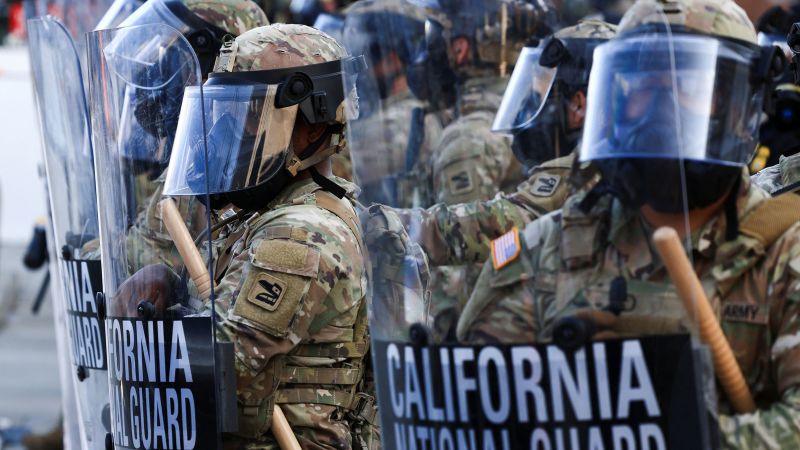A federal appeals court on Tuesday spent more than an hour grappling with whether President Donald Trump unlawfully federalized thousands of members of California’s National Guard to beef up security in Los Angeles amid unrest over immigration enforcement there.
A three-judge panel of the 9th US Circuit Court of Appeals did not immediately decide on a request from the Trump administration to pause a federal judge’s ruling that required Trump to relinquish control of the guardsman.
Judge Charles Breyer last week directed the president to do so after concluding that Trump had violated several provisions of the law he invoked in order to take control of the troops, including one that requires presidents to issue an order “through the governor” when they want to federalize state troops.
But at least two members of the panel, both appointed by Trump, appeared skeptical of that finding as they probed an attorney for California over his arguments that Trump wrongly sent the order to the state’s top general.
“It would seem like the state has made the adjutant general effectively the substitute for the governor in this context. So why wasn’t it enough that they sent it to that officer?” Judge Mark Bennett told Samuel Harbourt, an attorney for California.
Judge Eric Miller said he found the state’s arguments represented a “very roundabout way of imposing a consultation requirement” that he didn’t seem to think existed in the law.
California has argued that the law, at a very minimum, required the president to give the order directly to Democratic Gov. Gavin Newsom, who would then have a chance to consult with Trump about his plans.
The two judges also pressed an attorney for the Trump administration about whether Trump violated other provisions of the law at issue, including ones that require there to be certain factual predicates before he federalized the troops.
But the attorney repeatedly made clear that he didn’t think federal courts had a role to play in second-guessing the president’s determinations – an argument Breyer rejected last week.
This story is breaking and will be updated.
